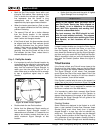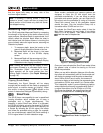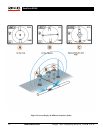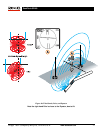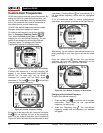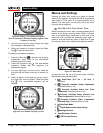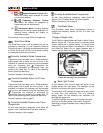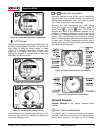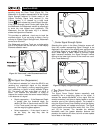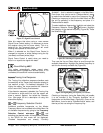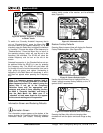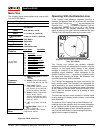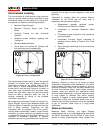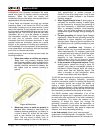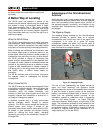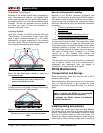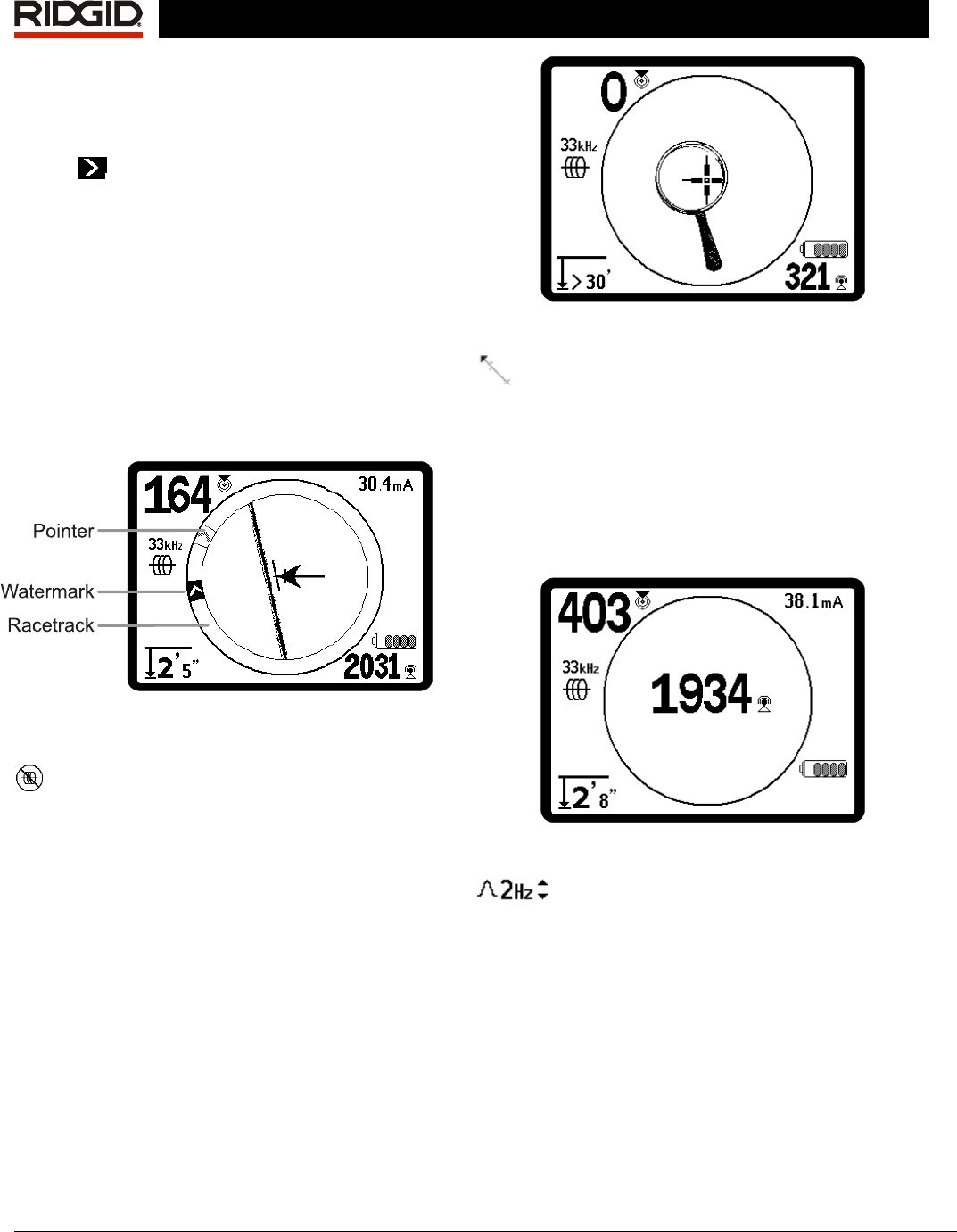
32 www.seektech.com Ridge Tool Company Elyria, Ohio U.S.A
SeekTech SR-60
traveling along the Race Track (Figure 54). The
Watermark is a graphic representation of the highest
Signal Strength reached (in Sonde mode) or the
highest Proximity Signal level reached (in Line
Tracing modes). It is “chased” by a solid Level
Pointer
which shows the current Signal Strength.
If the Signal Strength Level Pointer goes higher than
the Watermark, the Watermark moves up accordingly
to show the new highest level graphically. The
Watermark, like the high-water ring in a bathtub,
shows the highest level reached.
This provides an additional, visual way to track the
maximum signal. If you are trying to trace a line by
noticing its highest Signal Strength level, Watermark
serves as a visual aid.
The Watermark and Race Track are a single option
that is off by default but can be set on in the Display
Elements selection menu.
Figure 54: "Race-track" with Watermark and Level
Pointer
No-Signal Icon (Suppression)
IF this feature is selected “on”, when the SR-60 is not
receiving any meaningful signal on the selected
frequency, it will display a moving magnifying glass
icon, indicating no signal is being detected (
Figure
55). The sound will also mute when no signal is
found. This reduces the confusion of trying to
interpret the random noise that some locators display
in the absence of a signal.
• Depth suppression – If the Measured Depth
is greater than the threshold depth (by
default, 99’/30m in Sonde mode and 30’/10m
in Line Trace mode), the map is suppressed,
and the magnifying glass appears.
• Noise suppression – If the signal is seen to
be too noisy, the map may also be
suppressed.
Figure 55: No-Signal Icon
Center Signal Strength Option
Selecting this option in the Menu Selection screen will
force the number representing Signal Strength to be
displayed in the center of the display area anytime when
a Proximity Signal is not available (
Figure 56). This may
occur when signal is weak. When a Proximity Signal
again becomes available, the Signal Strength number
returns to the lower right corner of the screen as usual.
(Line Trace Mode only).
Figure 56: Display of Signal Strength at Screen Center
Signal Focus Control
The Signal Focus Control feature essentially acts
something like a magnifying glass on the signal. It
reduces the sample bandwidth of the signal that the
receiver examines, and gives a display based on a more
sensitive read of the incoming signals. The tradeoff in
using the Signal Focus Control setting is that the display,
while more precise, will update more slowly. The Signal
Focus Control can be set at 4Hz (wide), 2Hz, 1Hz, .5 Hz,
and .25 Hz (narrow). The narrower the selected
bandwidth used, the greater detection distance and
precision the receiver will show, but with a lower update
rate of data on the display.



